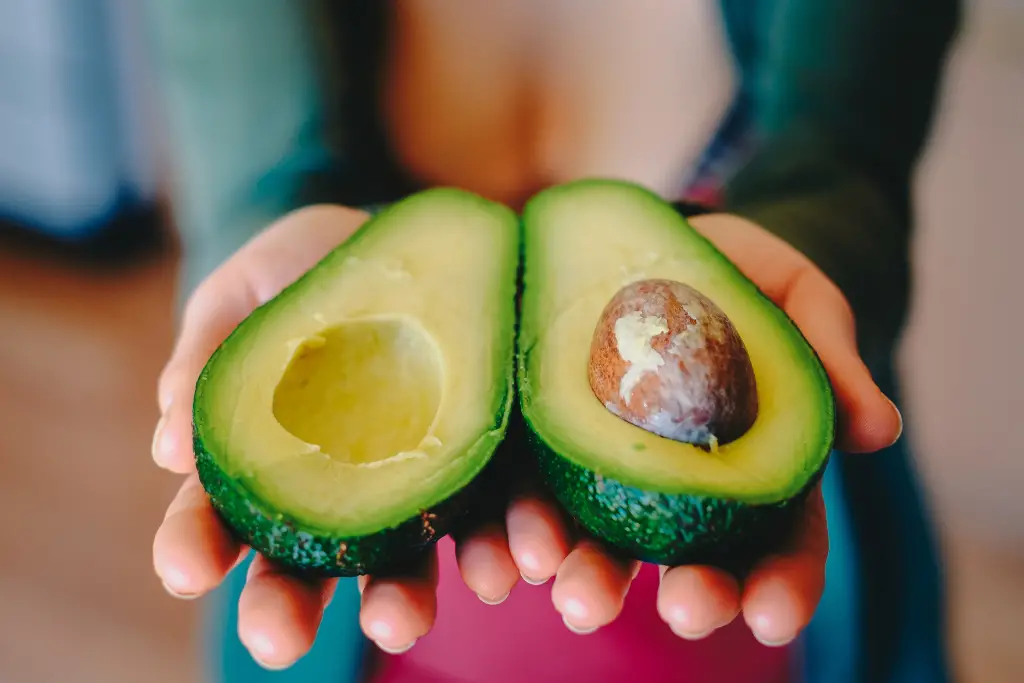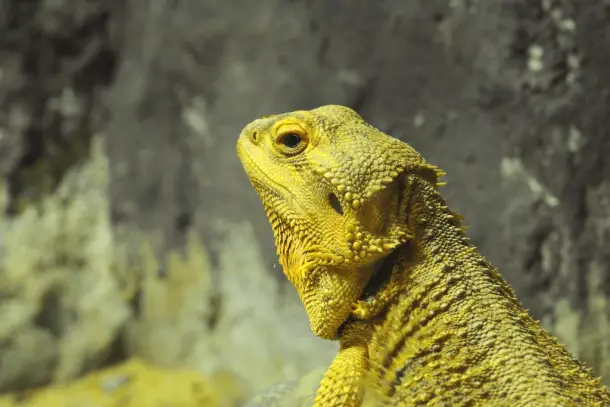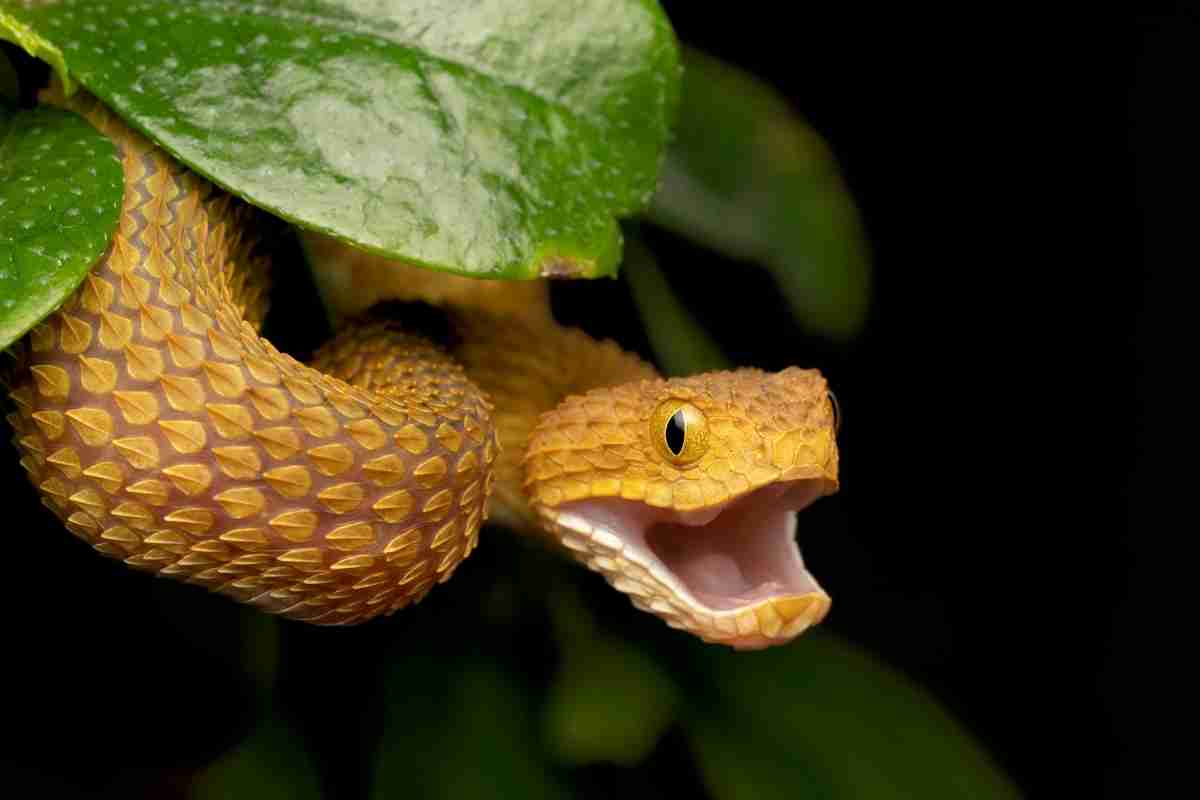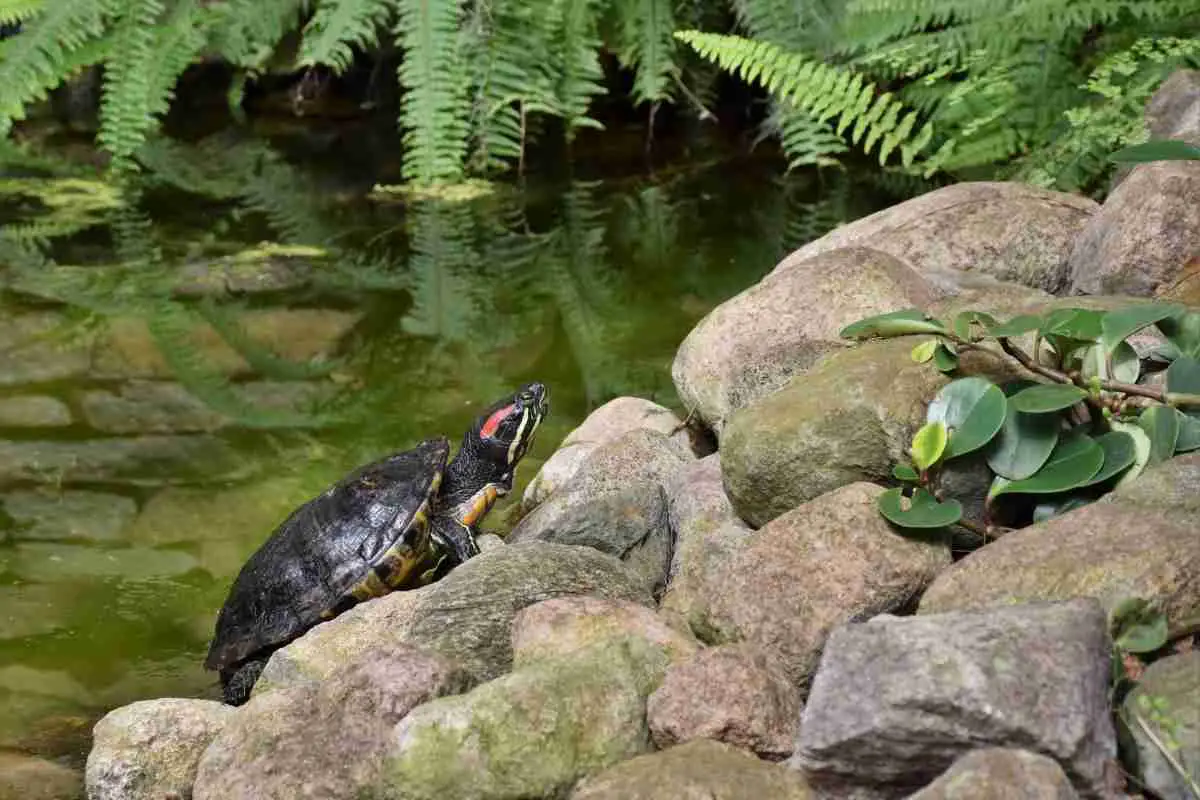Can bearded dragons eat avocado? Bearded dragons are excellent pets for people of all ages. These reptiles come from a habitat where food is not readily available. That’s why they can eat a variety of plant-based and animal-based foods.
Baby bearded dragons, however, are carnivores and rely on animal-based food, including insects.
Adult bearded dragons on the other hand are omnivores and eat insects, veggies, and fruits. Their diet includes 20 to 25 percent animal-based and 75 to 80 percent plant-based material.
It is crucial to discuss bearded dragons’ diet with the veterinarian, especially if you are a new pet owner.
The purpose is to include certain food items to maintain your reptile’s health and exclude specific veggies, fruits, or insects that can affect your pet’s overall wellbeing.
While they can eat various vegetables and fruits, many owners ask, “Can bearded dragons eat avocado?”
Unfortunately, Bearded dragons cannot eat avocados because they contain certain elements that can harm their health. Avocados are a rich source of Oxalic Acid that can make your bearded dragon sick.
Oxalic Acid can bind to minerals like iron and calcium in the kidneys, colon, and urinary tract to form iron oxalate and calcium oxalate. So your bearded dragon’s digestive system can’t absorb these compounds.
Because your bearded dragon needs certain essential vitamins and minerals to maintain its metabolism and other bodily function, oxalates’ presence in the body can limit metabolic rates.
Higher levels of oxalates that bind with certain essential nutrients can cause metabolic bone disease in reptiles.
Oxalic Acid present in the body can build up crystals throughout the body, causing stiffness, inflammation, pain, and impaired organs. Read on!
Why Bearded Dragons Can’t Eat Avocado?
Bearded Dragons can’t eat avocado because they are a rich source of essential nutrients, such as magnesium, potassium, folate, vitamin C, vitamin B2, B3, B5, B6, and fiber, making them a great food item for human beings.
However, this fruit is not beneficial for bearded dragons because it contains higher oxalic acid quantities that convert into oxalates in their body.
Your bearded dragon’s digestive system is not designed to absorb oxalates.
The accumulation of oxalates in the body can lead to toxicity. Although smaller amounts of oxalates can make your bearded dragon sick, higher doses can poison and kill it.
Avocados contain a fungicidal known as “Persin,” which is poisonous for some animal species. Persin is abundantly present in avocado’s seeds and skin.
Although it does not harm humans, it can cause certain health conditions, such as vomiting, diarrhea, cardiovascular diseases, respiratory problems, and pulmonary failure in reptiles, including bearded dragons.
Higher quantities of Persin increase toxicity and leads to the death of the bearded dragon.
That’s why you should avoid including avocados in your bearded dragon’s diet. Although some bearded dragons recover from diseases after eating this fruit, many bearded dragons die due to high toxicity.
If you care about your pet’s life and want it to roam around in its terrarium for a longer period, you must not even think of avocadoes as a food item for your bearded dragon.
Rich Fat Content Can Cause Obesity
Avocados are an excellent source of monounsaturated fats, which are highly beneficial for humans. They help with weight loss, reduce hypertension, and decrease the risk of inflammation and pain. Monounsaturated fats can also prevent cardiovascular and heart diseases.
Over 75% of calories in avocados come from the fat content. Too much fat can lead to weight gain issues in bearded dragons.
Obesity can cause other serious conditions in your bearded dragon, such as gum decay, liver disorders, kidney diseases, and heart failure. That’s why avocados are an unhealthy choice for your reptile.
Oxalic Acid Can Cause Several Health Conditions
As mentioned earlier in the article avocados contain higher amounts of Oxalic Acid that can harm your bearded dragon health. Oxalic Acid interacts with certain essential elements in the body to form oxalates that restrict nutrients’ metabolism.
It is bad for your bearded dragon because it binds with magnesium and calcium in the bloodstream, limiting cells’ absorption capabilities.
Research shows that calcium and magnesium play a key role in the dragon’s body, streamlining various cellular mechanisms.
You see, calcium prevents MBD in bearded dragons. The most common symptoms of this disease are shaking or twitching limbs, bone fractures, weakness, lethargy, and paralysis.
It is crucial to include various vegetables and fruits in the diet for your bearded dragon. The purpose is to maintain balance and nourish your bearded dragon with all essential elements and minerals to reduce the likelihood of developing MBD.
Related Article
Why They Need Calcium in Their Diet?
Bearded drains need calcium in their diet to maintain their optimal health and prevent a wide range of diseases. A 2017 research study examined the health of 529 bearded dragons in captivity.
Researchers used various testing techniques, including fecal samples, blood-profile analysis, ultrasound, computed tomography, and radiography to detect diseases.
Researchers found the presence of constipation, diarrhea, and metabolic bone disease due to calcium and phosphorus imbalances.
57% of bearded dragons had abnormal calcium to phosphorus ratio, and 63% had hypocalcemia. Approximately 19% of these reptiles had musculoskeletal disorders, including osteodystrophy and limb fractures.
Researchers concluded that feeding bearded dragons with food items that contain calcium is the best husbandry practice to prevent hypocalcemia.
Calcium plays a vital role in numerous bodily functions, including muscle contraction, blood clotting, skeletal formation, and most importantly, bone matrix mineralization.
It is an essential electrolyte that normalizes the nervous system and maintains brain, heart, and skeletal muscles functions.
Vitamin D3 is necessary for calcium absorption in the bearded dragon’s body. It supports reproduction, muscles, tissues, nerves, cardiovascular health, and bones.
Lower Levels Of Calcium Can Cause Health Issues
Your bearded dragon can develop a wide range of health conditions if it does not get enough calcium in the diet. Hypocalcemia is a health condition characterized by low levels of calcium in the blood.
The disease is caused by inadequate ultraviolet (UVB) exposure for calcium absorption. It is also caused by low dietary calcium and higher levels of vitamin A, which competes with vitamin D3.
Inadequate calcium to phosphorus ratio in the body or food that contains more phosphorus than calcium can also lead to hypocalcemia.
Low-level calcium content in the body can produce serious effects on your bearded dragons’ health, including seizures, hyperexcitability, spinal fractures, bone deformities, weakness, scoliosis, paralysis disorientation, abnormal movement, constipation, pliable bones, and even death.
Calcium deficiency can cause nutritional secondary hyperparathyroidism (NHSP). It is a serious health condition similar to osteoporosis in humans.
Because baby bearded dragons primarily eat insects or consume low dietary calcium, they can develop NSHP.
If you want to protect your bearded dragon from NHSP, MBD, and hypocalcemia, it is essential to feed your reptile with calcium-rich food items.
What If Your Bearded Dragon Eat’s Avocado Accidentally?
Many pet owners are not aware of the fact that avocados are toxic to their bearded dragons. So It is crucial that bearded dragons do not eat avocado or other fruits that contain oxalic Acid.
- Don’t Panic
- Call Your Vet Immediately
- Look For Signs Like Respiratory Distress
- Try To Give Them Some Water
It’s important that bearded dragons do not come in contact with an avocado, but even if it eats this fruit accidentally, don’t panic. Stay calm and call your veterinarian immediately.
Look for signs like respiratory distress and difficulty breathing, and if you think your pet is behaving abnormally, you can give him a warm bath.
That way, your bearded dragon will flush out the toxins from its body immediately. Likewise, you can give your pet a lot of water using a syringe to wash out the toxic oxalic Acid and Persin quickly.
So, this will calm down your bearded dragon and normalize the situation, but if the problem persists, take your pet to the vet clinic so that proper treatment is ensured.
Your bearded dragon is lucky if it has survived after the treatment. Remember, you must not give your bearded dragon toxic fruits like avocado in the future.
Make a list of essential food items that do not cause harm to your bearded dragon so that you can avoid emergencies and ensure the proper health of your pet. Optimal health increases your pet’s lifespan, which ultimately makes you a happy owner.
Related Article

Other Fruits They Can Eat
With many vegetables and fruits, it is not easy to know which food items are best for your bearded dragon. In this section, we will go through other fruits that your bearded dragon can eat to maintain its overall health and wellbeing.
The rule of thumb is to choose fruits with good calcium to phosphorus ratio and avoid fruits that contain high quantities of Oxalic Acid. A balanced diet is crucial to keeping your bearded dragon healthy.
The most commonly encountered diseases are due to inadequate calcium to phosphorus ratio. That’s why most pet owners go for commercially developed calcium supplements.
Although we are talking about fruits, keep in mind that some veggies like cabbage and spinach are disastrous for your bearded dragon because they contain higher amounts of oxalates, causing MBD and other health conditions.
Some of the best fruits for your bearded dragon are:
- Bananas
- Apples
- Blueberries
- Strawberries
- Grapes
- Watermelon
Bananas
Instead of giving your bearded dragon avocados, you can feed your pet with nutritious bananas.
These are packed with vitamin B, vitamin C, magnesium, potassium, copper, manganese, fiber, and carbohydrates. Bananas are good for skin, heart health, and cardiovascular function.
It also supports the gastrointestinal tract and helps beat digestive issues. Bananas also provide energy to your bearded dragons.
Because your bearded dragon needs calcium in its diet to maintain bone matrix mineralization, you can give your pet bananas in small doses at least two times a month.
One hundred grams of banana contain 5mg calcium. Your breaded dragon should not treat too many bananas because they have sugar that can lead to lower metabolism and obesity.
Overall, bananas are great for your bearded dragon.
Apples
Apple is an excellent fruit and delicious food for your bearded dragon. It is an excellent source of water for your pet, especially for your baby bearded dragon who has not yet learned to drink from the water bowl.
Apple is packed with vitamin C that keeps your bearded dragon healthy.
Remove the seeds before your bearded dragon eat the apple because seeds can cause a choking hazard. Feeding your apple can provide higher quantities of vitamin C to your bearded dragon to prevent infectious stomatitis.
It is a health condition characterized by bruising, bleeding gums, torn skin, and digestive issues like diarrhea. Vets recommend vitamin C to prevent or treat infectious stomatitis.
Other essential nutrients in apples are carbs, fiber, potassium, and vitamin K.
Blueberries
Your bearded dragon would love to eat blueberries. Not only are blueberries nutritious and sweet, but they are also a rich source of antioxidants that promote cardiovascular health and reduce inflammatory diseases.
Blueberries also contain carbohydrates that provide energy to your bearded dragon.
Manganese in blueberries support metabolism and prevent inflammation, vitamin K1 aids blood flow, supports bone health, and regulates blood clotting.
Your bearded dragon needs a significant amount of vitamin C to maintain its immune system to fight various diseases.
Blueberries contain higher levels of vitamin C that not only strengthen the immune system, but also support reproduction, sharpen vision, and metabolic development.
Moreover, blueberries contain 85% water that can help your bearded dragon stay hydrated.
Strawberries
Strawberries are another recommended fruit for your bearded dragon. However, you should feed your bearded dragon strawberries in moderation because they contain higher quantities of sugar, which can harm them.
On the other hand, strawberries can provide your pet with water, protein, carbohydrates, energy, fiber, calcium, phosphorus, fat, potassium, magnesium, vitamin C, and vitamin. All these nutrients are necessary for normal bodily functions.
Many owners say that one large strawberry every 2-4 weeks is enough for your bearded dragon. Make sure you don’t feed your pet strawberries more than once or twice a week.
Strawberries contain 41.3mg of potassium that supports muscles, prevents kidney disorders, and reduce water retention.
Strawberries are also an antioxidant-rich food that can lower cholesterol and reduce the risk of cardiovascular conditions. These antioxidants can also help prevent diarrhea.
Wash and chop strawberries into smaller pieces before serving your bearded dragon to avoid a choking hazard.
Grapes
Your bearded dragon can eat grapes in moderation. You can feed your pet with grapes from time to time because this fruit contains higher amounts of fiber and calcium. Both fiber and calcium play a key role in maintaining the optimal health of your pet.
Grapes are very high in water, which can hydrate your bearded dragon cells. However, they also contain sugar and oxalates that can produce harmful effects.
That’s why it is important to feed your pet with smaller servings of grapes every 2-4 weeks.
Cut the grape head into four pieces so that your bearded dragon can swallow it properly. If you have a baby bearded dragon, cutting the grape becomes more important. That way, your pet can swallow and digest the grape easily.
Grapes are an excellent source of carbohydrates, proteins, fiber, vitamin C, vitamin K, fiber, and thiamine. These nutrients are important for normal cellular functions. Vitamin C found in grapes can boost the immune system to combat various diseases.
Watermelon
If your bearded dragon has hydration problems, you can give it watermelon. It consists of 92% water that nourishes your pet and keeps its blood clean. Most owners suggest that bearded dragons should eat small pieces of watermelon once or twice a month.
Instead of avocados that contain harmful oxalates, watermelon provides your bearded dragon with essential vitamins and minerals.
For instance, it consists of vitamin C and beta carotene that promote optimal growth, maintains the reproductive system, improve vision, and boost the immune system.
It also contains magnesium and potassium, which can support metabolism and regulate blood pressure, respectively.
Although watermelon is a delicious treat, it has more phosphorus than calcium that can disturb the calcium-to-phosphorus ratio in the body. It’s recommended that you feed your reptile watermelon once a month or less frequently.
Figs
Your bearded dragon can eat a raw fig once a week. It is a rich source of calcium and fiber. Because figs are usually dried, it is crucial to cut them in smaller pieces before feeding your pet to prevent a choking hazard.
Dried figs contain higher quantities of antioxidants. They have more calcium than other fruits. One ounce of fig provides 5% of calcium. It also contains a significant amount of potassium and vitamin k.
Furthermore, vitamin K regulates blood clots, and potassium supports muscle function. Potassium is also crucial in preventing kidney disorders and lowering water retention. Figs also contain magnesium, iron, and copper. Other recommended fruits for bearded dragons are:
- Apricot
- Kiwi
- Mango
- Peach
- Pear
- Blackberry
- Raspberry
- Guava
Conclusion
So can bearded dragons eat avocado? NO! and doing so can make your beloved reptile very ill which could lead to much worse later on. The bottom line is to avoid feeding your pet avocado as it’s not going to do them any favors at all.
It’s better to feed them fruit that you know will benefit their health. In the end, bearded dragons will eat anything you give them including avocado and it may look like they are enjoying it but this doesn’t mean it’s good for them.
Related Articles:




